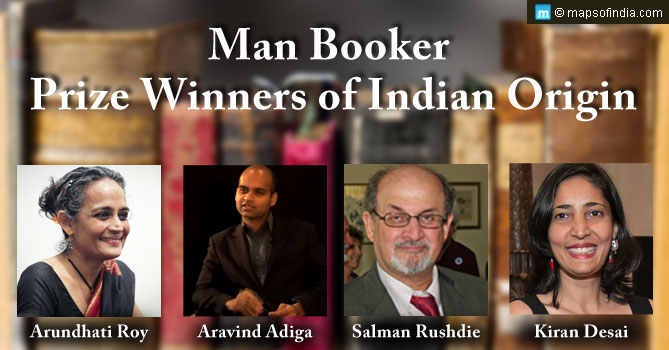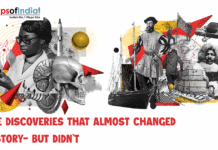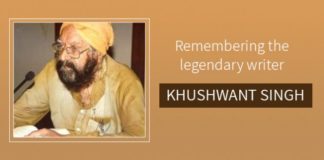Man Booker Prize is a high-profile literary award which has been presented each year since 1969 for the books originally written in English Language and published in the United Kingdom. The prize is of great significance as it brings fame and recognition to the winners. It is greeted with huge fanfare and anticipation. Each year, a panel of judges is chosen from a wide range of disciplines including poets, politicians, actors, journalists, and broadcasters who present the Man Booker Prize. Indians have also won this award many times since its inception and have also been a part of the panel of judges. The Man Booker Prize is designed to promote the finest fiction written in the English language. Being amongst one of the most important literary awards of the world, this award has the power to transform the fortune of the authors and publishers as well.
Let us have a look at the people of Indian origin who have won this award –
Salman Rushdie – Salman Rushdie is a British novelist and essayist of Indian origin. He was born in India into a Kashmiri Muslim family and later relocated to Pakistan to live with his family who migrated there after Independence. After studying in King’s College at the University of Cambridge, Rushdie settled down in England to pursue his career as a copywriter.
Salman Rushdie won the Man Booker Prize for his book “Midnight’s Children” in 1981. The book is considered one of the finest pieces of literature. The book deals with the transition of India from the colonisation period under the British to Independence and the partition. The novel contains lasting power and has been critically acclaimed worldwide. It is the second book penned by this incredible author which won the “Booker of Bookers” prize in 1993. “Midnight’s Children” is claimed to be the best novel to win the award in its first 25 years. It won another special award “The Best of the Booker” in 2008 on its fortieth anniversary. Other two novels of Rushdie – Shame (1983) and The Moor’s Last Sigh (1995) were also shortlisted for the prize.
Arundhati Roy – Arundhati Roy is an Indian Author who is renowned for her book “The God of Small Things” which won the prestigious Man Booker Prize for fiction in 1997. The vast knowledge of Arundhati regarding the prevalent issues and causes was utilised while writing the novel. This, in turn, helped the novel to become the best-selling book of a non-expatriate author. “The God of Small Things” is the first novel of Arundhati and is based on the childhood experiences of two seven-year-old twins and their individual experiences. The novel reflects the larger political unrest in India during that time.
Kiran Desai – Kiran Desai is one of the most famed authors in India who won the Man Booker Prize for her novel “The Inheritance of Loss”. Desai is the daughter of Anita Desai, one of the finest authors of India, who was herself nominated for the Man Booker Prize several times. Published in 2006, the novel was written over a period of seven years after her first book. The main themes of “The Inheritance of Loss” is migration, living between two worlds depicting the present and the past. The book focuses on the legacy of British colonisation and its losses on the Indian subcontinent.
Aravind Adiga – Arvind Adiga is an Indo-Australian writer who won the distinguished Man Booker Prize for “The White Tiger” in 2008. Adiga was born in India but later moved to Australia. He completed his education from Columbia University and Oxford University and is now settled in Mumbai, Maharashtra.“ The White Tiger” was his debut novel which won this accolade in the same year. The novel sheds light on the class struggle of India. The dark humour is invoked in the novel as it is narrated from the retrospective angle of Balram Halwai, a simple village fellow. The book displays Balram as a successful entrepreneur who represents himself as the “tomorrow” of a nation which is leaving behind its history of poverty and underdevelopment.
Hope, you are intrigued after knowing about the books and the authors. Go ahead and read these novels if you haven’t read them yet.






